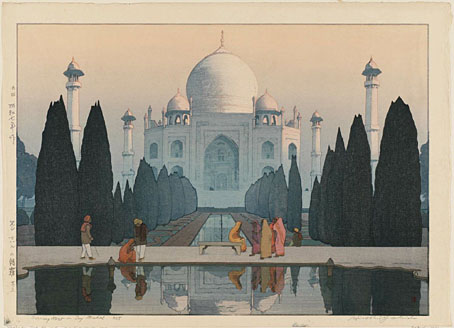
Morning Mist in Taj Mahal (Taj Mahal series no. 5) (1932).
Views of countries other than Japan are uncommon in the world of ukiyo-e printmaking but such views do exist. The works of Hiroshi Yoshida (1876–1950) include plenty of traditional Japanese subjects–Mount Fuji, views of Tokyo, etc–but his prints also reflect his travels to India, Egypt, Europe, the United States and elsewhere. As with Japanese prints, temples are a recurrent theme, together with views of the natural world, which in this case includes the Himalayas.
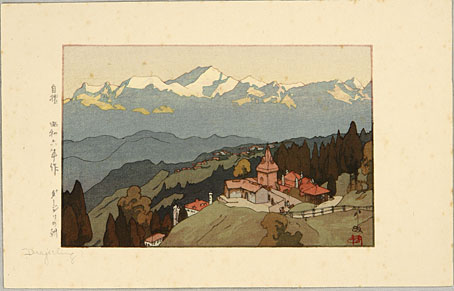
Morning at Darjeeling (1931).
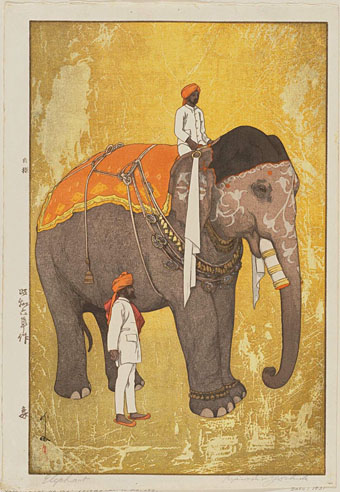
Elephant (1931).
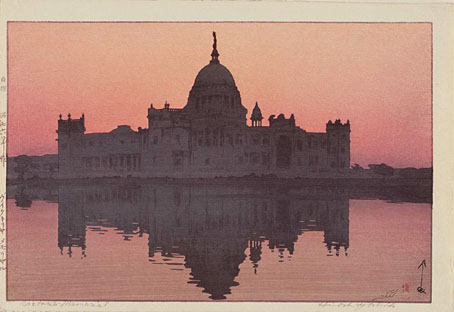
Victoria Memorial (1931).
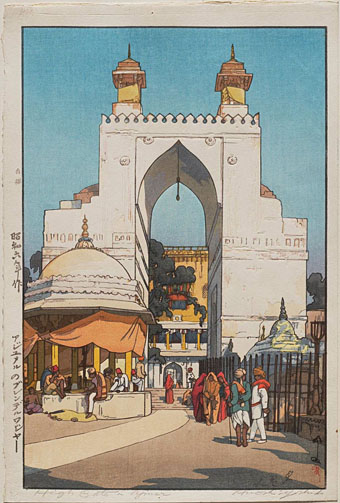
High Gate in Ajmer (1931).
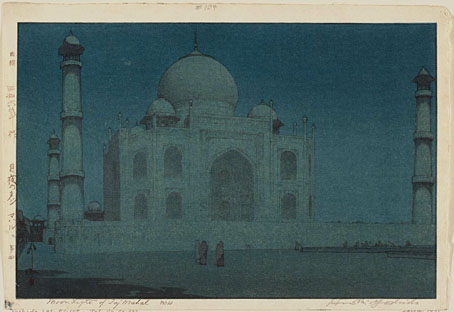
Moonlight, Taj Mahal (Taj Mahal series no. 4) (1931).
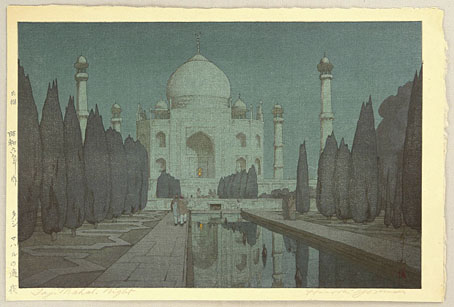
Night in Taj Mahal (Taj Mahal series no. 6) (1931).
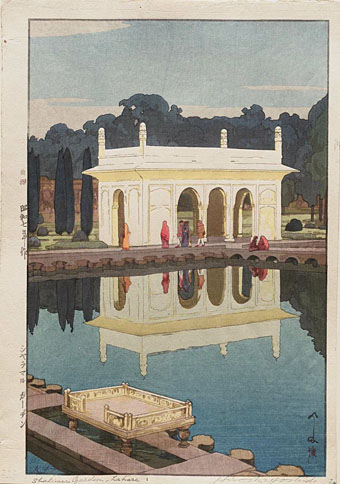
Shalimar Garden, Lahore (1932).
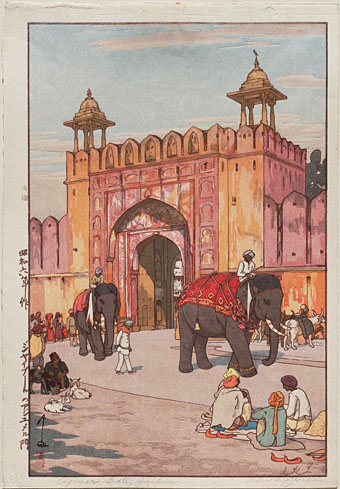
Ajmer Gate, Jaipur (1931).
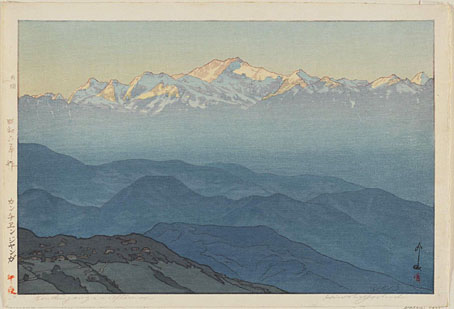
Khanchinjanga, Afternoon (1931).
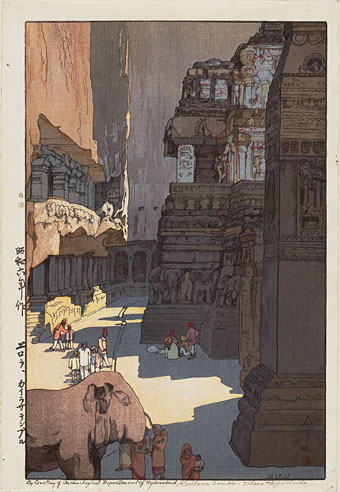
Kailasa Temple, Ellora Highlands (1931).
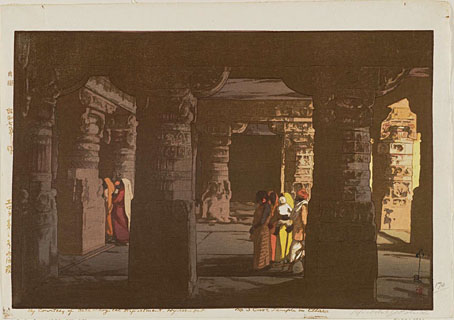
A Cave Temple, Ellora (1932).
Previously on { feuilleton }
• The art of Hasui Kawase, 1883–1957
• Nineteen views of Zen gardens
• Ten views of the Itsukushima Shrine
• Charles Bartlett’s prints
• Sixteen views of Meoto Iwa
• Waves and clouds
• Yoshitoshi’s ghosts
• Japanese moons
• The Hell Courtesan
• Nocturnes
• Henri Rivière’s Eiffel Tower

I just love your blog – thank you for sharing all this art and book covers and weekend links. Every time I open my RSS app I find myself checking whether you’ve posted again yet. I’d be gutted if you stopped posting.
I’m just an RSS lurker and I don’t know if you get any statistics for RSS readers, so I just wanted to say I’m here, I’m reading every post, and I love your blog. Thank you.
Hello, and thanks! It’s always good to receive some positive feedback.
I don’t think it’s possible to receive stats from RSS other than whatever follow-up visits you might get if people look at the site rather than reading the feed. My posts are delivered in full to feed readers so many people will read them away from the site. I try to avoid being overly concerned with statistics, the obsession with numbers and “engagement” is what drives a lot of the internet’s bad habits.
I’ve no intention of stopping here, especially since I’ve given up on social media. I like being able to talk to the world but I like it even more when it’s on my own terms, without the pressures or restrictions you find in other places.
Hi
I’m no scholar, so I may be pointing out the obvious, but I come over all a bit Moebius looking at these!
I think that’s a valid observation. The ligne claire style you find in French and Belgian comics is very similar to the style of later Japanese prints. The architectural emphasis in this collection reminds me of one of my favourite Belgian artists, François Schuiten.